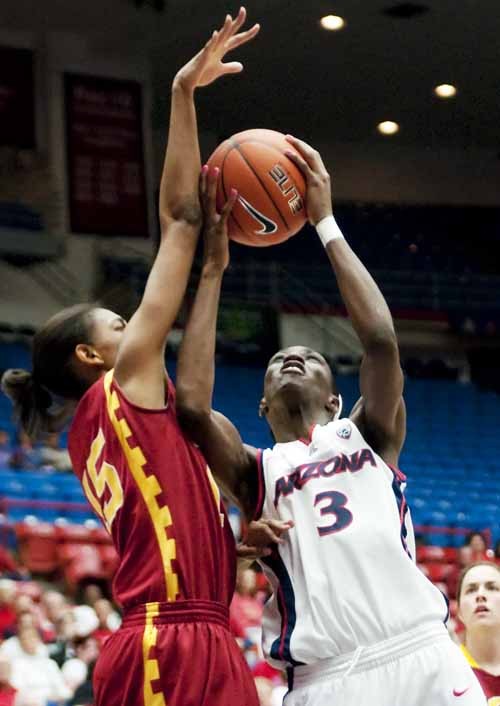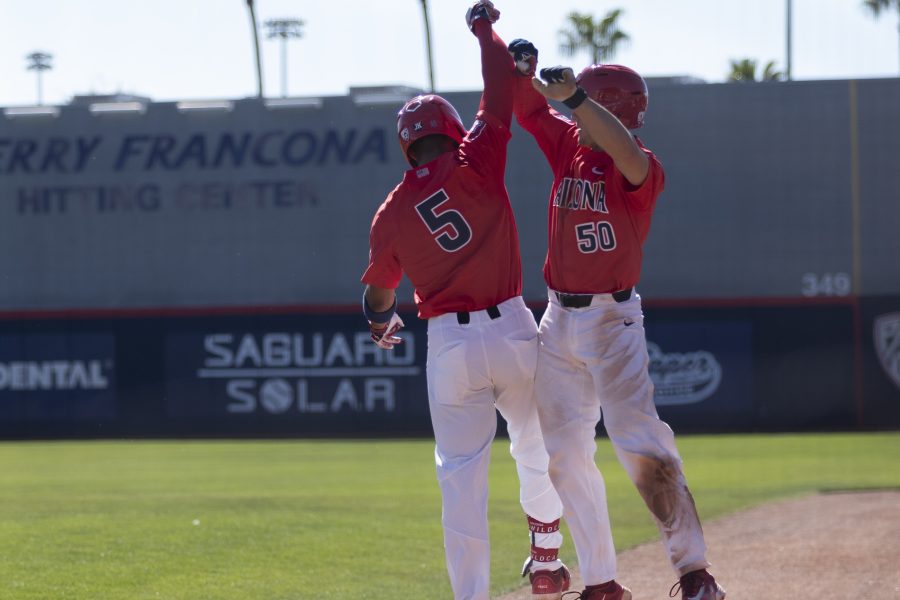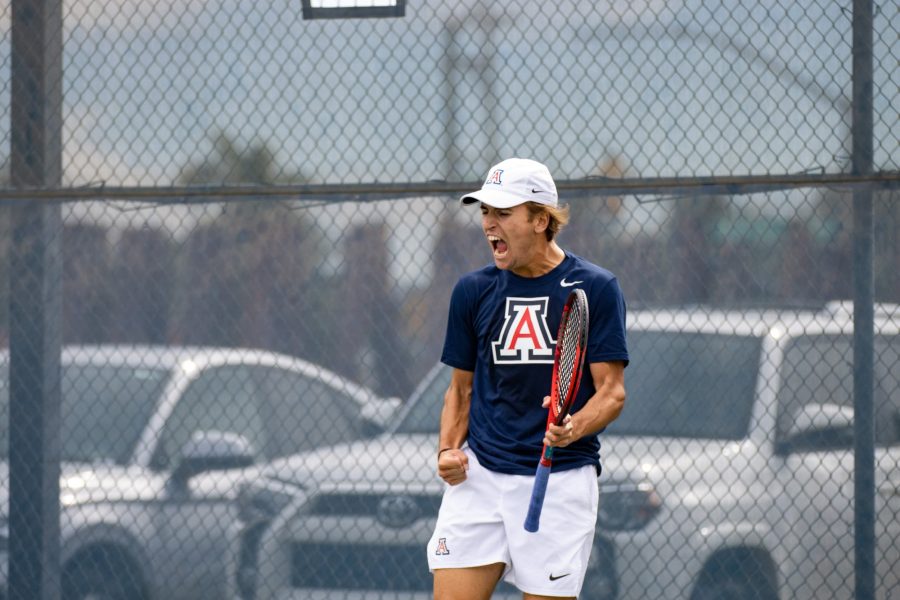If there were any questions about how Ify Ibekwe was going to be remembered after her career at Arizona, they were answered on Monday.
Now a former Wildcat, the 6-foot-2-inch forward was selected 24th overall — the final pick of the second round — by the defending champion Seattle Storm in Monday’s WNBA Draft, cementing her legacy as one of Arizona’s most prolific players.
Not that there was much question about how Ibekwe would be remembered after her four years in cardinal and navy. The Carson, Calif., native averaged a double double for her career with 14 points and 10 rebounds per game.
That was good enough to make her Arizona’s highest ever WNBA Draft selection, and the first Arizona product to play in the WNBA since Adia Barnes.
“”I can’t believe that,”” Ibekwe said. “”I’m just so thankful.””
But her play on the court isn’t the only way Ibekwe left her mark.
Ibekwe’s acceptance of a leadership role was a huge reason for Arizona’s transition from perennial doormat to a dangerous opponent for most of the 2011 Pacific 10 Conference schedule.
“”As time went on, she got better and she understood what she needed to do,”” Arizona head coach Niya Butts said. “”The second half of the year is a big reason we’re talking about her today.””
The second half of the year saw Ibekwe carry Arizona on her back.
It started with a 73-61 upset over rival ASU — Arizona’s first victory against the Sun Devils since January of 2005. Ibekwe scored 22 points and grabbed 22 rebounds, refusing to go winless against ASU in her career.
“”I had to be vocal,”” Ibekwe said. “”I’ll say what needs to be said. I’ll talk to individual people on the team and say, ‘You need to step it up,’ or ‘You need to do this.'””
Then Arizona won seven of its next eight games, with the only loss coming to powerhouse Stanford.
Why did Arizona get so hot?
The answer’s simple: Ibekwe figured out what she was capable of.
“”Somewhere in there, the light bulb went off for her,”” Butts said. “”We always knew she was one of the most talented players in the country.””
Another reason for Ibekwe’s success is the attention she pays to something many elite players scorn — defense.
Named the Pac-10 Defensive Player of the Year in 2011, Ibekwe is able to contribute even when she’s having an off-night in terms of scoring.
“”They just want me as an all-around player, which is so good,”” Ibekwe said. “”They don’t just want me to block shots or for defense or to score, they want me for everything. I have to go in there and compete and want it.””
That’s the good news for Seattle — Ibekwe has never done anything but compete, and do it extraordinarily well.
But for one day, competing on the court wasn’t anywhere near Ibekwe’s mind.
“”I’m so overwhelmed,”” she said. “”I’m excited, surprised, crying. This is amazing.””
— Alex Williams is a journalism sophomore. He can be reached at sports@wildcat.arizona.edu.









